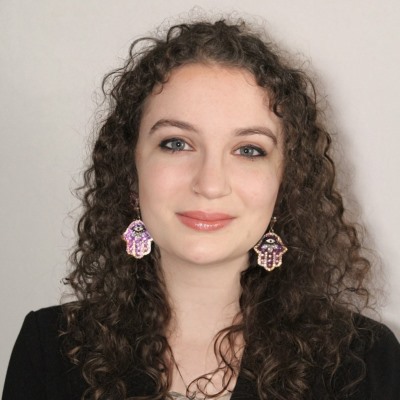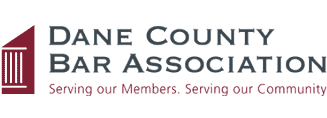Spring 2025 Winner of the Fight Against Domestic Violence Scholarship
Gail Tynkov
Gail is deeply dedicated to advocating for victims of domestic violence, and she plans to use her legal career to be a voice for them. She emphasizes the importance of education and structural reform in creating meaningful change in domestic violence prevention. Congratulations Gail – your work truly makes a difference!

Read Gail’s Essay:
To me, domestic violence is an incredibly serious issue, an issue I focused on in my personal statement to law schools, an issue that has affected me personally as well as a majority of my family and friends. According to the National Domestic Violence Hotline, this is not just anecdotal: roughly 30% of women and 10% of men have experienced some sort of violence in their interpersonal relationships. This is not a marginal problem; it is a national crisis. And it is one we don't talk about enough.
When I think about domestic violence, I don't think only in terms of statistics. I think about the people I love, the parts of myself I’ve tried to put back together, the conversations had in whispered tones, the hidden bruises, and the trust that takes years to rebuild. I think about the cycles, how normalized it can become, how long it takes to even recognize what’s happening to you as abuse. I think about how many people don’t make it out. That’s why writing this, and why working toward legal solutions, is more than academic for me. It’s personal. It’s survival.
The issue is serious not just because of how widespread it is, but because of how silent it can be. Many survivors, especially young women, people of color, and those with limited economic resources, feel trapped in cycles of violence with few visible exits. Leaving isn’t easy. People ask, “Why didn’t they just leave?” as if that’s the beginning and end of the story. But leaving is often when the violence escalates. It’s when survivors are most at risk of being killed. It’s also when financial insecurity, housing instability, and a lack of systemic support become glaring obstacles.
Anecdotally, the only reason I believe I survived the worst abusive relationship I was in during undergrad was because of a post a friend, who was aware of the situation, shared with me. It read that being strangulated increases a victim's chances of being killed by the same partner by 750%. I remember feeling frozen when I read that. I remember thinking, “This is real. This is what could happen.” That post gave me the clarity and the fear I needed to start planning my exit in a smarter, safer way. Not everyone gets that moment. Not everyone gets that chance.
When thinking about solutions, I always come back to the fact that awareness saves lives. Education is not just a buzzword here; it is a lifeline. We need to integrate relationship health education into middle and high school curriculums. Not just “don’t hit your partner,” but full conversations around coercion, emotional abuse, isolation, financial control, digital stalking, and consent. We need to give young people the language to recognize when something is wrong, before they become trapped in it.
We also need to invest, substantially, in community resources. That means domestic violence shelters that are actually funded to meet the needs of their communities. That means transitional housing, legal aid, childcare, and job placement assistance. It means trauma-informed therapists who don’t have six-month waiting lists. It means investing in the long haul of recovery, not just the immediate escape.
I also think the legal system has a long way to go in handling domestic violence cases. Too often, victims are retraumatized in court, or face disbelief from police officers and judges who don't understand the nuances of these dynamics. Orders of protection are ignored, and custody cases often favor abusers. There needs to be mandatory training on domestic violence for all actors in the legal system: judges, lawyers, law enforcement, child protective services. Not one-time trainings, but ongoing education that evolves as our understanding of abuse evolves.
While punishment is one tool, it cannot be the only one. We need restorative and transformative justice options for survivors who do not want to engage with the carceral system, particularly in marginalized communities where calling the police might feel more dangerous than staying. We need more survivor-led advocacy. More funding for grassroots organizations that have been doing this work for decades. And we need the legal and political will to listen to what survivors actually want and need.
Most importantly, we need to believe survivors. That may sound simple, but it’s not always the case. Survivors are still asked what they did to provoke it, why they stayed so long, why they didn’t report. We need to shift the blame off survivors and onto the systems and people that enable abusers to keep abusing.
The ripple effects of domestic violence are enormous. Survivors carry physical injuries, PTSD, depression, anxiety, and lasting mistrust. Children who grow up in abusive homes are more likely to experience or perpetuate abuse themselves. Whole communities are affected. And yet, it’s so easy to pretend it’s a private issue, something that happens behind closed doors.
But it’s not just a private issue. It’s a structural one, deserving structural solutions. Solutions that are survivor-centered, culturally competent, and backed by actual funding, not just awareness months or performative hashtags. Real change means asking hard questions about gender, power, and violence. It means listening to people who have lived it. And it means making sure those people are in the rooms where policies are made.
By fostering a society that prioritizes awareness, prevention, and intervention, we can work toward a future where domestic violence is not common. Where the group of individuals affected, the group we all know too well, becomes smaller, not bigger. I want to live in a world where survivors are not just surviving, but thriving. And I want the legal system to be a tool in making that happen, not an obstacle.
This issue is urgent. It’s deadly. But it’s not hopeless. With enough will, empathy, and commitment, we can create systems that support survivors instead of failing them. We just have to care enough to try. And I do. Because for me, and for so many others, this is more than policy. It’s personal.









